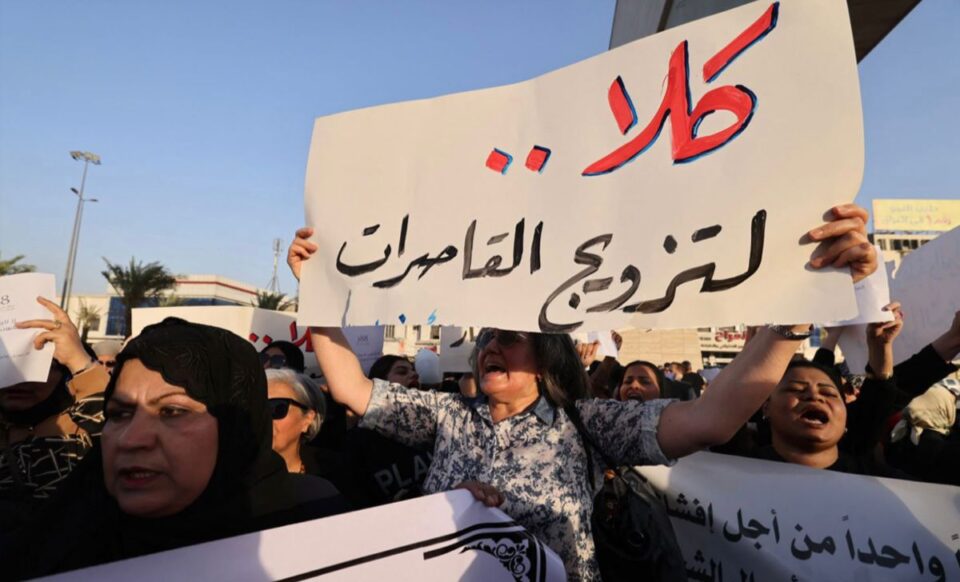The Personal Status Law No. 188, which was enacted in 1959 during the leadership of Abdul Karim Qassim, a prominent figure known for his secular leftist ideology, has become a focal point of controversy among various religious communities, particularly the Shiite population. These groups argue that the law’s provisions are incompatible with their religious beliefs and practices, leading to significant tensions.
At its core, the law is fundamentally based on Islamic principles, and it does not include any clauses that directly contradict these tenets. However, the interpretation and application of these principles can vary widely among different sects and communities. Detractors of the law assert that recent amendments have not been introduced with the intention of enhancing the rights and welfare of families or individuals. Instead, they argue that these changes reflect a broader shift towards conservatism, which they believe undermines the rights of women and children. This perceived regression in rights could potentially lead to the disintegration of family structures, as the law may impose restrictions that limit the autonomy and agency of women within the family unit.
The call from certain members of parliament and factions to revise the Personal Status Law (Law No. 188 of 1959) has sparked significant debate within the Iraqi House of Representatives, leading to a variety of perspectives. Some parliamentarians and legal experts argue that the suggested amendments to the personal status law represent a political maneuver that undermines constitutional values, democratic principles, and the rights of women and children, serving primarily the interests of a specific religious group. This initiative risks creating a schism between Sunni and Shiite sects, while simultaneously transferring authority from the judiciary to religious clerics in matters related to marriage.
Sarwa Mohammed, a representative on the Women, Children, and Family Committee of the Iraqi Parliament, stated that extensive discussions have taken place within the Iraqi parliament and its specialized committees for over two months. The collection of more than 100 signatures has hindered the initial reading of the bill; however, the first reading of the amendment will occur in November.
The articles have created protests
A consensus was reached between certain Shiite and Sunni factions to include an additional item on the parliamentary agenda, specifically the amendment of the personal status law, in return for the enactment of the general amnesty law. This agreement resulted in the initial reading of the proposed legislation.
The change to the Personal Status Law highlights various articles, particularly those that require couples to identify as either Shiite or Sunni when getting married. Additionally, if any disagreements arise between the couple, the wife is expected to follow her husband’s religious beliefs.
Sarwa Mohammed stated that this represents an imposition on the determination of religion, which contradicts a constitutional provision. In the context of Iraq’s federal democracy, the enforcement of religious principles within legal frameworks stands in opposition to democratic values.
The amendment stipulates that couples may enter into marriage outside of judicial oversight, despite the legal text indicating that such actions are subject to penalties. This shift effectively transfers authority from the judicial system to religious leaders. Additionally, the amendment permits girls to marry at the age of nine.
Increasing misery
Numerous representatives of civil society contend that the modification of the Personal Status Law represents a significant setback for Iraqi society, undermining the rights established for families over six decades ago. This concern is particularly salient given that Iraqi society has already endured numerous social challenges and instances of family disintegration as a result of war and devastation. In light of these potential repercussions, both Kurdish representatives and a substantial majority of Sunni members in the House of Representatives have expressed their opposition to the amendment of the Personal Status Law, which is applicable solely within Iraq and does not extend to the Kurdistan Region.
The purpose of the amendment
One of the most pressing consequences of these legal and social dynamics is the alarming number of children being born without official identity documentation. This lack of legal recognition leaves many women and children in a precarious position, devoid of essential rights and protections. The absence of identity cards not only affects their access to education and healthcare but also exacerbates existing social issues, such as poverty and marginalization. The implications of this situation are profound, as it contributes to a cycle of disenfranchisement that can have lasting effects on future generations.
The Personal Status Law No. 188, while rooted in Islamic principles, has become a contentious issue, particularly among Shiite communities who feel that it conflicts with their beliefs. The recent amendments are viewed by critics as a move towards conservatism that threatens the rights of women and children, leading to significant social challenges, including the birth of children without legal identity, which further entrenches issues of inequality and social instability.
Jawad Qadir

